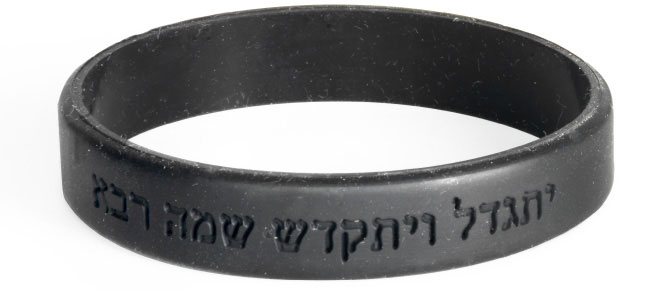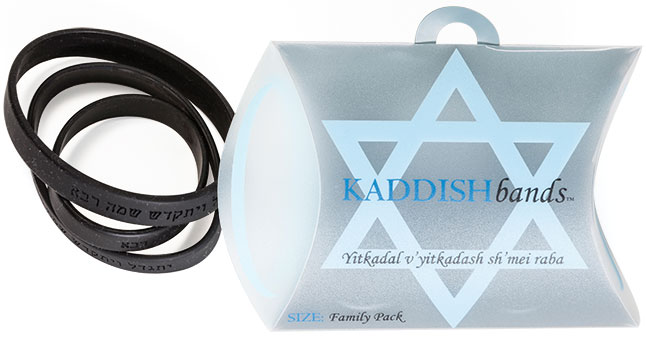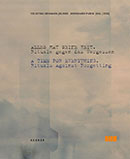Finiteness
KaddishBand™
Amichai LLC, Roswell (GA), USA, 2012

-
Silicon
© Jewish Museum Berlin, photo: Roman März
"Glorified and sanctified be God's great name": these are the opening words of the Kaddish, the prayer that mourners recite at the grave. Kaddish means sanctification, and this very ancient prayer is not about death, but praises God as the creator of the world. The idea of stamping the opening words of the mourner's Kaddish into silicon bracelets like these is an innovation from the United States. As a quiet sign of mourning, they serve to commemorate the deceased.

- KaddishBand™ and its plastic box
© Jewish Museum Munich, photo: Franz Kimmel, Munich
The black wristbands accompany the bereaved throughout their period of mourning. A deceased person is usually buried within twenty-four hours. The funeral marks the beginning of the seven days of shivah (Hebrew: "seven"). In this first period of intense mourning, the immediate family gathers to sit shivah in the home of the deceased person or a relative. Neighbors bring the first meals, and the daily recitation of the Kaddish is organized. Nowadays, some of the traditional mourning customs—such as covering mirrors or sitting on low stools—are not observed as much as they used to be. The bereaved find their way back into everyday life over the next thirty days. During this period, they are not supposed to shave or cut their hair.
The Kaddish has a set place in the service, but starting in the thirteenth century it also became established as a mourners' prayer, thus becoming one of the cornerstones of Jewish identity. Many secular Jews who are not religiously observant nevertheless feel the need to memorialize their deceased parents in the traditional way, and to help their souls ascend to heaven by reciting the Kaddish with its praise of God.



















